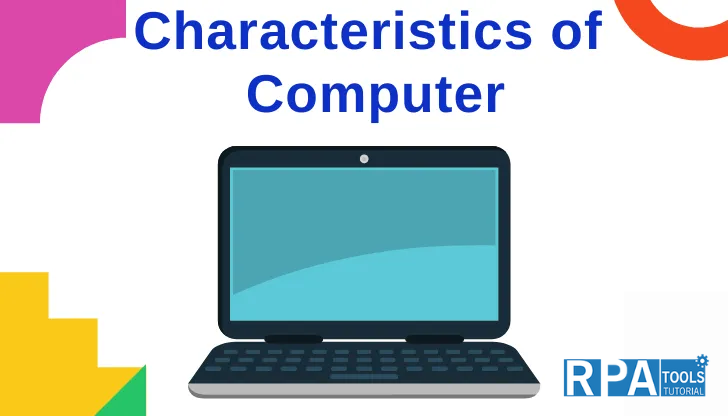Computers possess several key characteristics that distinguish them from other devices and make them indispensable tools in today's world. Here are some of the fundamental characteristics of computers:
कम्प्यूटरसँग धेरै मुख्य विशेषताहरू छन् जसले तिनीहरूलाई अन्य उपकरणहरूबाट अलग गर्दछ र तिनीहरूलाई आजको संसारमा अपरिहार्य उपकरणहरू बनाउँछ। यहाँ कम्प्युटरका केही आधारभूत विशेषताहरू छन्:
Speed: Computers can execute instructions and perform calculations at incredible speeds, measured in millions or even billions of operations per second (megahertz or gigahertz). This rapid processing capability enables them to handle complex tasks quickly and efficiently.
गति: कम्प्युटरहरूले निर्देशनहरू कार्यान्वयन गर्न सक्छन् र अविश्वसनीय गतिमा गणनाहरू गर्न सक्छन्, लाखौं वा अरबौं अपरेशनहरू प्रति सेकेन्ड (मेगाहर्ट्ज वा गिगाहर्ट्ज) मा मापन गरिन्छ। यो द्रुत प्रशोधन क्षमताले तिनीहरूलाई जटिल कार्यहरू छिटो र कुशलतापूर्वक ह्यान्डल गर्न सक्षम बनाउँछ।
Accuracy: Computers are highly accurate in performing calculations and processing data, minimizing errors that may arise from human oversight or fatigue. Digital logic ensures precise execution of instructions, resulting in reliable outcomes.
शुद्धता: कम्प्यूटरहरू गणना गर्न र डाटा प्रशोधन गर्नमा अत्यधिक सटीक हुन्छन्, मानव निरीक्षण वा थकानबाट उत्पन्न हुन सक्ने त्रुटिहरू कम गर्न। डिजिटल तर्कले निर्देशनहरूको सटीक कार्यान्वयन सुनिश्चित गर्दछ, परिणामस्वरूप विश्वसनीय परिणामहरू।
Versatility: Computers are versatile machines capable of performing a wide range of tasks, from simple arithmetic calculations to complex simulations and data analysis. They can be programmed to execute various algorithms, making them adaptable to different applications and domains.
बहुमुखी प्रतिभा: कम्प्युटरहरू बहुमुखी मेसिनहरू हुन् जुन कार्यहरूको विस्तृत दायरा गर्न सक्षम छन्, साधारण अंकगणित गणनादेखि जटिल सिमुलेशनहरू र डेटा विश्लेषणसम्म। तिनीहरू विभिन्न एल्गोरिदमहरू कार्यान्वयन गर्न प्रोग्राम गर्न सकिन्छ, तिनीहरूलाई विभिन्न अनुप्रयोगहरू र डोमेनहरूमा अनुकूलनीय बनाउन।
Storage: Computers can store vast amounts of data persistently, thanks to storage devices like hard disk drives (HDDs), solid-state drives (SSDs), and cloud storage solutions. This capacity for data storage enables users to store, retrieve, and manipulate large volumes of information as needed.
भण्डारण: कम्प्युटरहरूले हार्ड डिस्क ड्राइभहरू (HDDs), सॉलिड-स्टेट ड्राइभहरू (SSDs), र क्लाउड भण्डारण समाधानहरू जस्ता भण्डारण यन्त्रहरूका लागि धेरै मात्रामा डाटा लगातार भण्डारण गर्न सक्छन्। डाटा भण्डारणको लागि यो क्षमताले प्रयोगकर्ताहरूलाई आवश्यकता अनुसार भण्डारण गर्न, पुन: प्राप्त गर्न र जानकारीको ठूलो मात्रामा हेरफेर गर्न सक्षम बनाउँछ।


0 Comments